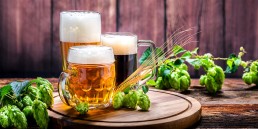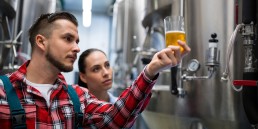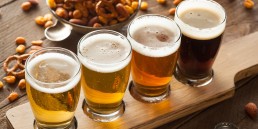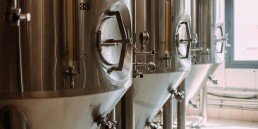Naturally Brewed
Craft beer is a type of beer brewed in small batches by independent brewers who prioritize quality and flavor over mass production. It is often described as “naturally brewed” because it typically uses traditional brewing methods and high-quality ingredients, including malted grains, hops, yeast, and water. Craft breweries often experiment with different flavor profiles and brewing techniques, resulting in a wide range of unique and distinctive beer styles. The emphasis on quality and craft brewing methods distinguishes craft beer from mass-produced beers, which are often brewed using less expensive ingredients and methods that prioritize performance over taste.
Naturally Brewed
Craft beer is a type of beer brewed in small batches by independent brewers who prioritize quality and flavor over mass production. It is often described as “naturally brewed” because it typically uses traditional brewing methods and high-quality ingredients, including malted grains, hops, yeast, and water. Craft breweries often experiment with different flavor profiles and brewing techniques, resulting in a wide range of unique and distinctive beer styles. The emphasis on quality and craft brewing methods distinguishes craft beer from mass-produced beers, which are often brewed using less expensive ingredients and methods that prioritize performance over taste.

Malt
Malt is a key natural ingredient in beer production, providing the enzymes, aromas, colors and body that make beer such a beloved and diverse beverage. In the production of natural craft beers, breweries do not replace malt with cheaper artificial substitutes like corn and rice without much nutritional value.

Malt milling
Malt grinding is an important step in the craft beer brewing process. Milling is the process of breaking malted grains into smaller particles, which allows for better extraction of sugars during the mashing process.
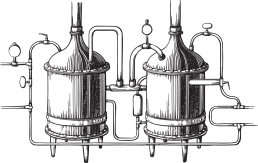
Wort cooking
It is a key stage in the craft beer brewing process. During boiling, the wort (a liquid made from malted grains and water) is sterilized and important chemical reactions take place that help shape the taste, aroma and appearance of the beer.
Filtering
This is an important process where the beer passes through a filter to remove any residual solids, yeast or other contaminants that may remain after fermentation.

Cooling
Wort cooling is a key step in craft beer brewing and the use of a heat exchanger is a common and effective method of reaching the desired temperature quickly and efficiently.
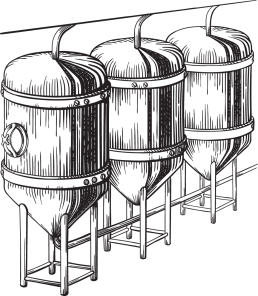
Fermentation
This is a key stage in the production of craft beer. During fermentation, the yeast converts the sugars in the wort (a liquid made from malted grains and water) into alcohol and carbon dioxide, creating the unique flavors and aromas that characterize beer.
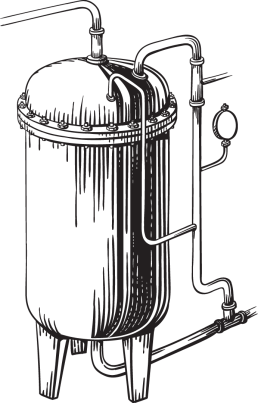
Beer filtration
This is a process used to clarify and stabilize beer by removing any remaining solids, yeast or other impurities that may remain after fermentation. Some craft brewers choose to filter their beer while others prefer to leave it unfiltered, and both approaches can produce high-quality and delicious beer.

Spilling
It is an important part of serving craft beer in a brewery workshop. The right pouring technique can help ensure that the beer is served at the right temperature, with the right amount of carbonation, and with the right amount of foam.

Serving
There’s more to serving craft beer than just pouring it into a glass. Proper serving techniques can enhance the flavor and aroma of beer and provide a better overall customer experience.


